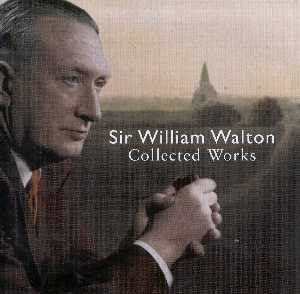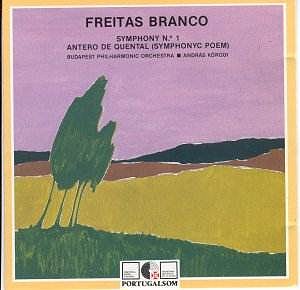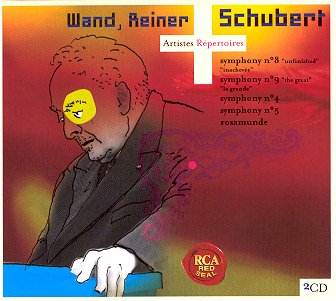 Composer: William Walton
Composer: William Walton
Works: Symphony No. 1 (1935), Violin Concerto (1939), Cello Concerto (1957), Viola Concerto (1929), Sinfonia Concertante – original version (1927)
Performers: London Symphony Orchestra/André Previn (Symphony), Jascha Heifetz/Philharmonia Orchestra/William Walton (Violin Concerto), Gregor Piatigorsky/Boston Symphony Orchestra/Charles Munch (Cello Concerto), Yuri Bashmet/London Symphony Orchestra/André Previn (Viola Concerto), Kathryn Stott/Royal Philharmonic Orchestra/Vernon Handley (Sinfonia Concertante)
Recording: Various recordings including 1966 (Symphony), 1950 (Violin Concerto), 1957 (Cello Concerto), 1994 (Viola Concerto), 1989 (Sinfonia Concertante)
Label: RCA-BMG
William Walton, a titan of the British musical landscape, produced a remarkable body of work that fuses lyrical beauty with rhythmic vitality. His compositions, particularly those collected in this EMI release, reflect the evolution of his style from the exuberant early years to the more introspective later periods. The recordings presented encompass some of his most significant orchestral and concertante compositions, including the tumultuous Symphony No. 1 and the emotionally charged Violin Concerto. Each work reveals not only Walton’s unique voice but also the interpretative brilliance of the performers who have championed them.
André Previn’s interpretation of the Symphony No. 1 stands as a monumental achievement. The London Symphony Orchestra executes Walton’s intricate orchestration with commendable precision and flair. Previn captures the brooding intensity and rhythmic drive that define the symphony, particularly in the exuberant finale where the orchestration reaches a fever pitch at the 1:20 mark. The dynamic range is extraordinary, though the aging recording occasionally betrays itself with surface noise. Despite this, the performance remains compelling, reflecting a creative fervor that resonates even decades later. The recording’s visceral impact is akin to a sonic blast furnace, igniting the listener’s imagination.
The Violin Concerto, performed by the legendary Jascha Heifetz, is a testament to the violinist’s interpretative prowess. Recorded in 1950, this version, while mono, captures the work’s essence with remarkable clarity. Heifetz navigates the concerto’s emotional landscape—from the bright, sunlit exuberance of the first movement to the poignant tragedy of the finale—with a restrained yet passionate touch that avoids the pitfalls of excessive sentimentality. His interpretation, while not free from the occasional harshness typical of the era’s recording technology, benefits from a depth of understanding that few can match. Comparatively, Ida Haendel’s later recording on EMI offers a more modern soundscape, yet Heifetz’s emotional immediacy remains unmatched.
Gregor Piatigorsky’s world premiere recording of the Cello Concerto highlights the work’s dramatic contrasts and virtuosic demands. Under Charles Munch’s direction, the Boston Symphony Orchestra delivers a robust accompaniment, creating an electric atmosphere that enhances Piatigorsky’s impassioned playing. The Allegro appassionato unfolds with a fierce intensity, embodying the tumultuous spirit of Walton’s writing. This recording, though recorded in the 1950s, stands resilient against the test of time, showcasing the synergy between soloist and orchestra in a way that feels both historical and immediate.
Yuri Bashmet’s interpretation of the Viola Concerto, recorded in 1994, benefits from technological advancements, presenting a sound that is rich and clear. Bashmet plays with a lyrical grace that captures the concerto’s introspective qualities, although the work itself often feels overshadowed by the brilliance of Walton’s other concertos. Kathryn Stott’s performance of the Sinfonia Concertante is a delightful surprise, bringing a lightness and airiness to the work that is often overlooked in critiques of Walton’s early compositions. The interplay of the piano with the orchestra is deftly handled, though Stott’s piano occasionally suffers from a slight harshness in its recording.
This collection serves as a comprehensive tribute to Walton’s contributions to the 20th-century orchestral repertoire, showcasing both the composer’s thematic richness and the diverse interpretations that have emerged over the decades. Each recording, while reflecting its own unique era and technological limitations, collectively underscores the enduring vitality of Walton’s music. The performances remain vital and engaging, making this compilation an essential acquisition for those who appreciate the breadth of British classical music. Those who might shy away from recordings of earlier vintage would do well to embrace these interpretations, as they encapsulate a golden age of performance that continues to inspire.


